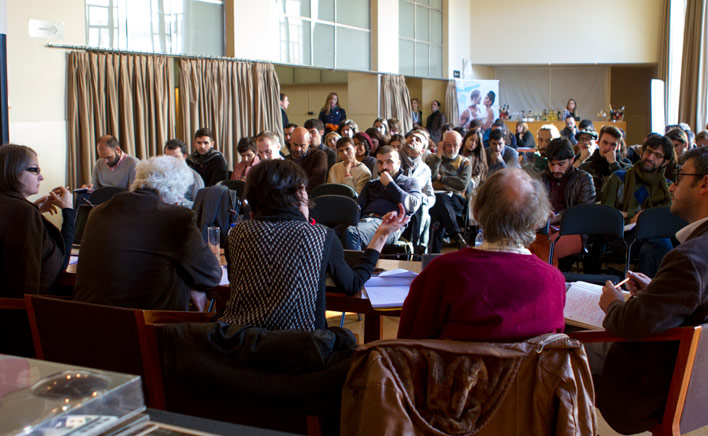
See the organization of the three panels here: Panel #1: Thinking the Fictions of the Real; Panel #2: Directing images, producing cinema; Panel #3: Reviewing António Reis and Margarida Cordeiro.
Throughout its history, cinema has always dialogued with the real. Eventually, the technical device required it, which is why film theory soon devoted itself to this question, namely through Walter Benjamin, Siegfried Kracauer or André Bazin´s writings. On the one hand, the capture of the real, without mediation; on the other hand, the re-signification of the world by means of a reconfiguration through moving images. Later, in the path of Gilles Deleuze, with his time-image and the power of the false in modern cinema, Jacques Rancière rethought the question of fiction and the real in cinema, recovering Aristotle's Poetics to suggest that "what distinguishes fiction from common experience is not the deprivation of reality, but a supplement of rationality".
If, in 2018, this discussion makes sense, it’s because the moving images have occupied an increasingly hybrid space, competing for the emergence of notions such as post-truth or reality hunger, which have assumed a preponderant place in generalist media discourse in an apparent depreciation of the artifice, of the false, of construction, in its widest sense and, therefore, of fictions – inferring that the more false, the less real, and, in fact, the more real (in the mimetic sense), the less authentic. From this cinematic and specular game of appearances, truth, authenticity, reality and fiction will born the debate along the three panels of the Forum of the Real.
Thus, the approximation to the real can be made from a hybridity between the labels of fiction and documentary, complementing itself in the construction of new realities. Portuguese cinema, for example, has always exploited this undefined field in a fertile way. It is precisely in this interstice that we can find the duo António Reis and Margarida Cordeiro and their major work: Trás-os-Montes. In this movie, the re-enactments aimed to peer into the ancestry of a remote place in northern Portugal. In the narrative woven by their work, Reis and Cordeiro undermine any hypothesis of solving the puzzle – documentary and fiction are one and the same, because the essential thing is to capture the forms of life of a community. It would be, moreover, this idea of community – more than reality or truth – that Pedro Costa would later explore in his films, on the path of Reis, his master.
In previous editions of the Forum of the Real, Porto/ Post/ Doc looked at this real through different prisms – by the dimensions of imagination, archive or sensation. This year, we try to contrast this reality starting from the tools and edges of fiction. What is left, thus, of truth or reality after the real invades the mainstream culture? Can cinema pass unharmed? The answer seems obvious: cinema can no longer simulate the suspension of disbelief, this notion that, in the negative, sutures the viewer to the film, in the immersion of the dark room.